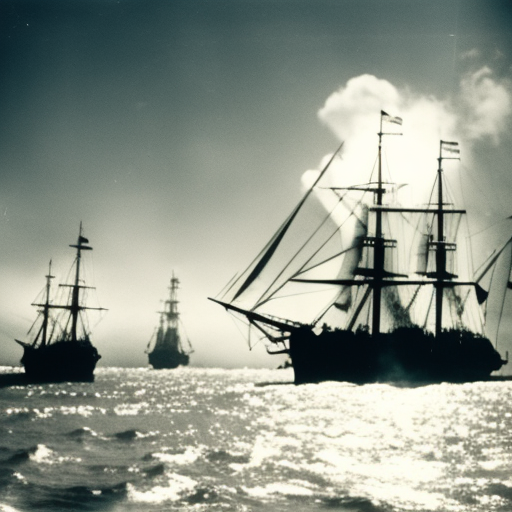Tunisian Campaign: Allied Forces Liberate North Africa
The Tunisian Campaign was a series of battles fought in North Africa during World War II. It took place from November 1942 to May 1943 and involved the Allied forces, led by the United States and the United Kingdom, against the Axis powers, primarily Germany and Italy. The campaign aimed to liberate Tunisia from Axis control and secure the Mediterranean Sea for the Allies.
Background
Prior to the Tunisian Campaign, the Axis powers had gained control over North Africa, with German General Erwin Rommel leading the Afrika Korps in a successful advance across Libya and into Egypt. However, the British Eighth Army, under the command of General Bernard Montgomery, managed to halt Rommel’s advance at the Battle of El Alamein in October 1942. This victory marked a turning point in the North African theater and set the stage for the Tunisian Campaign.
The Battle of Kasserine Pass
The campaign began with the Battle of Kasserine Pass in February 1943. The inexperienced American forces, led by General Lloyd Fredendall, faced off against Rommel’s seasoned troops. The Americans suffered heavy casualties and were forced to retreat, highlighting the need for better training and coordination. However, this defeat served as a wake-up call for the Allied forces, who quickly made adjustments and learned from their mistakes.
Operation Torch and the Allied Advance
In November 1942, prior to the Tunisian Campaign, the Allies launched Operation Torch, an amphibious invasion of French North Africa. The goal was to secure the region and establish a base for further operations. The operation was a success, with the Allies quickly capturing key cities such as Casablanca, Oran, and Algiers.
With the success of Operation Torch, the Allies began their advance eastward towards Tunisia. The British Eighth Army, now under the command of General Montgomery, pushed westward from Egypt, while the U.S. II Corps, led by General George S. Patton, advanced from Algeria. The Axis forces, caught between the two Allied armies, were forced to retreat.
The Battle of Medenine and the German Withdrawal
In March 1943, the Allies launched the Battle of Medenine, a major offensive against Rommel’s forces. The battle resulted in a decisive Allied victory, with the Axis forces suffering heavy losses. This defeat, combined with supply shortages and the threat of being cut off from their supply lines, prompted the Germans to begin a strategic withdrawal from Tunisia.
The Battle of Tunis and Victory
The final phase of the Tunisian Campaign was the Battle of Tunis, which took place in April and May 1943. The Allied forces, now reinforced with additional troops, launched a coordinated assault on the Axis positions. The Germans and Italians put up a fierce resistance, but they were ultimately overwhelmed by the superior firepower and numbers of the Allied forces.
By early May 1943, the Axis forces in Tunisia were in full retreat. On May 13, the remaining German and Italian troops surrendered, marking the end of the Tunisian Campaign and the first major Allied victory in the European theater of World War II.
Significance
The Tunisian Campaign was a significant turning point in World War II. It marked the first major defeat for the Axis powers in the European theater and demonstrated the effectiveness of the Allied strategy. The campaign also provided valuable experience for the American forces, who learned important lessons that would shape their future operations.
Furthermore, the success of the Tunisian Campaign paved the way for the Allied invasion of Sicily and the subsequent Italian Campaign. It also secured the Mediterranean Sea for the Allies, allowing for the safe passage of supplies and reinforcements to the front lines.
In conclusion, the Tunisian Campaign was a crucial military operation that led to the liberation of North Africa from Axis control. Through a series of battles and offensives, the Allied forces managed to defeat the Axis powers and secure a strategic victory. The campaign not only boosted Allied morale but also set the stage for future operations in the Mediterranean and ultimately contributed to the overall Allied victory in World War II.












